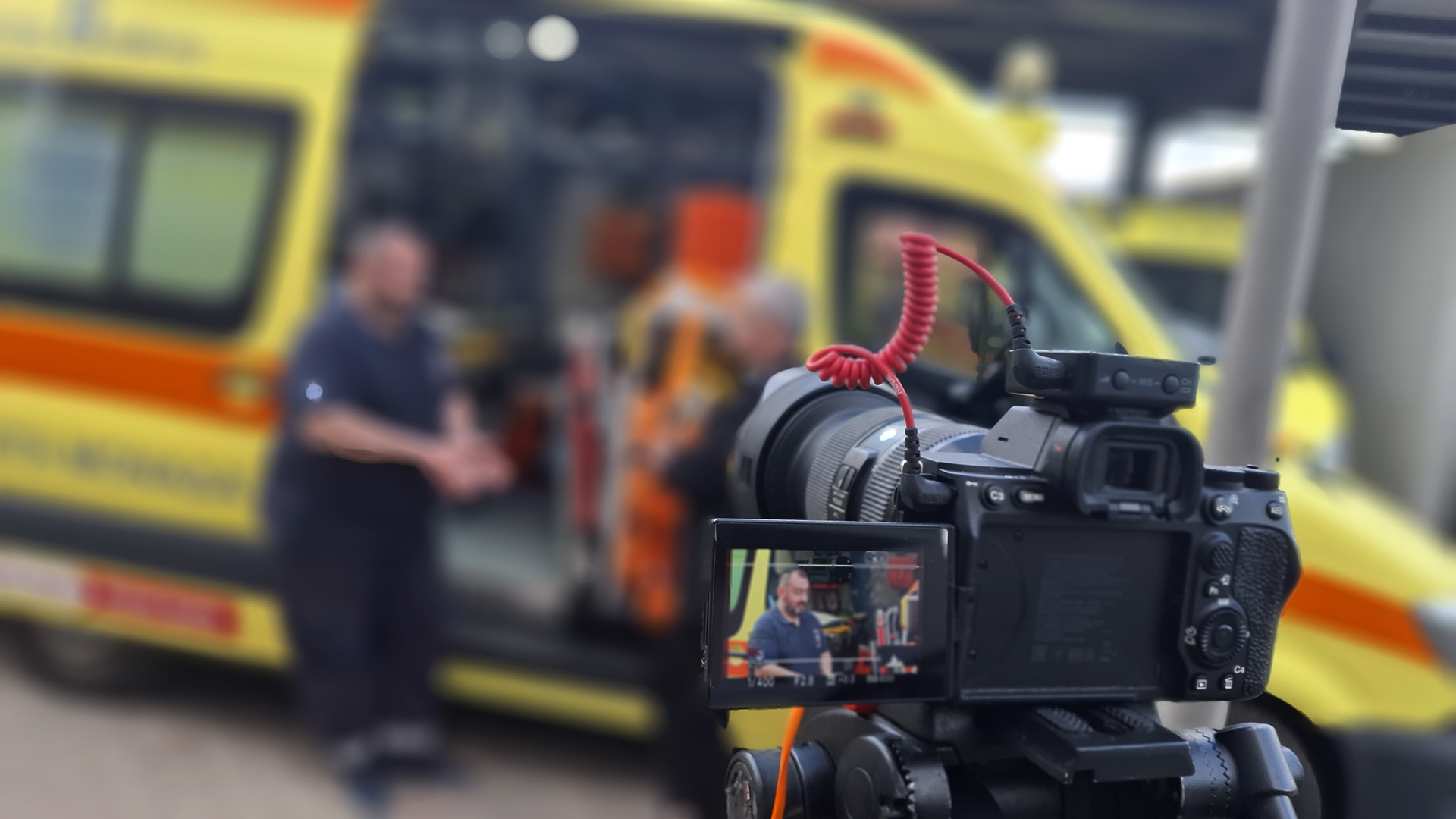Three regional media outlets – One goal: Fewer accidents
Translation: Anatoli Stavroulopoulou
A collaboration between three regional journalists aimed at making a meaningful impact. That was our goal when we submitted our proposal to iMEdD (incubator for Media Education and Development) for a video report focused on road traffic accidents in Greece.
Along with Vasilis Alexiou from Trikala and Socrates Moutidis from Kozani, we came together at the journalistic crossroads created by the iMEdD incubator initiative, which encourages collaboration among Greece’s regional media, both print and digital. It was an experience that was both meaningful and creatively subversive for all three of us.
Three regions deeply affected by road accidents. With the warm and meaningful support of the iMEdD incubator, we were given the opportunity to focus on one of the most tragic yet overlooked aspects of daily life—not only in our regions but across all of Greece.
Investigating the Issue of Air Pollution in Thessaloniki and Ioannina
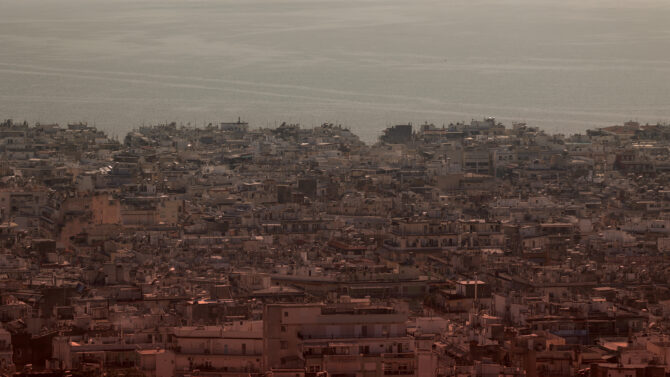
Journalist Sofia Christoforidou describes the story behind the report on air pollution in Thessaloniki and Ioannina. The investigation was conducted in collaboration with journalist Giorgos Tsantikos, as part of this year’s iMEdD incubator for local media.
Statistics as a tool
We decided to use statistics as a tool. By running a multicriteria regression analysis, we examined the relationship between the number of road traffic fatalities and per capita and total GDP, unemployment rate, and higher education attainment rate.
Based on our regression analysis, the results showed that the greater the economic activity, the higher the number of road accidents—a finding attributed to increased traffic volume, especially in tourist areas.
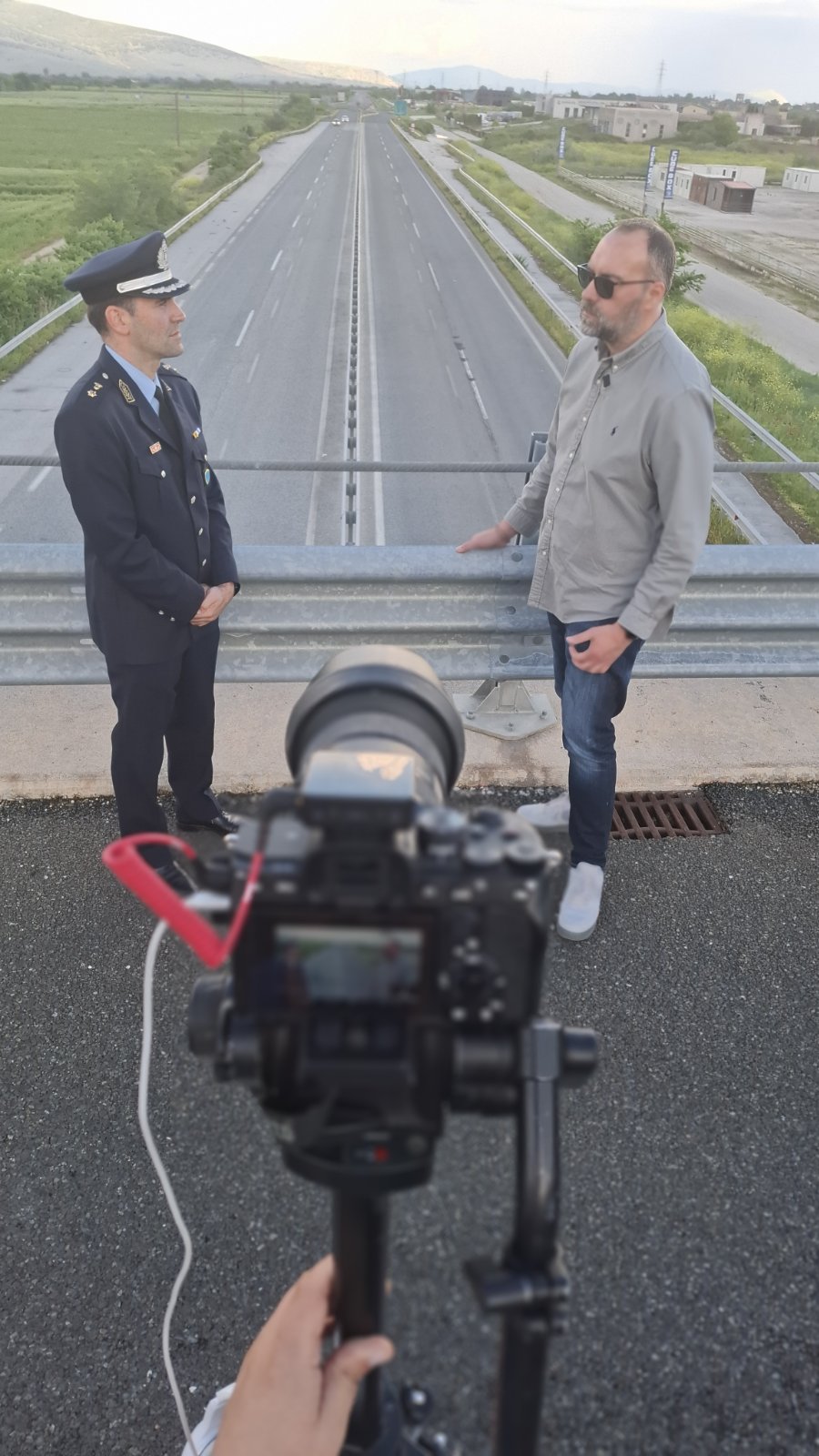
Unemployment was also found to be linked to the number of casualties, indicating socioeconomic inequalities underlying these incidents.
We also observed that regions with a higher percentage of university graduates reported more victims. These regions tend to be more densely populated, and are home to universities, student populations, vibrant nightlife, and a high number of young drivers. These factors increase mobility and traffic load, leading to a higher likelihood of accidents.
Our model enables policymakers to anticipate and prioritize road safety improvements according to the profile of each region.
A partnership with promise
The support from iMEdD was invaluable. It represented a tangible commitment to independent journalism, grounded in trust, professionalism, and encouragement of innovation.
We were given the freedom to work in our own way, while respecting shared principles of ethics and verification, testing our capabilities in a field largely unfamiliar to us.
Our collaboration was exemplary. This “vertical” journalistic axis—from Macedonia to Crete—was built on mutual respect within our team, consistent communication, and a shared need to highlight aspects of road safety that rarely receive the time and attention they require on a national level.
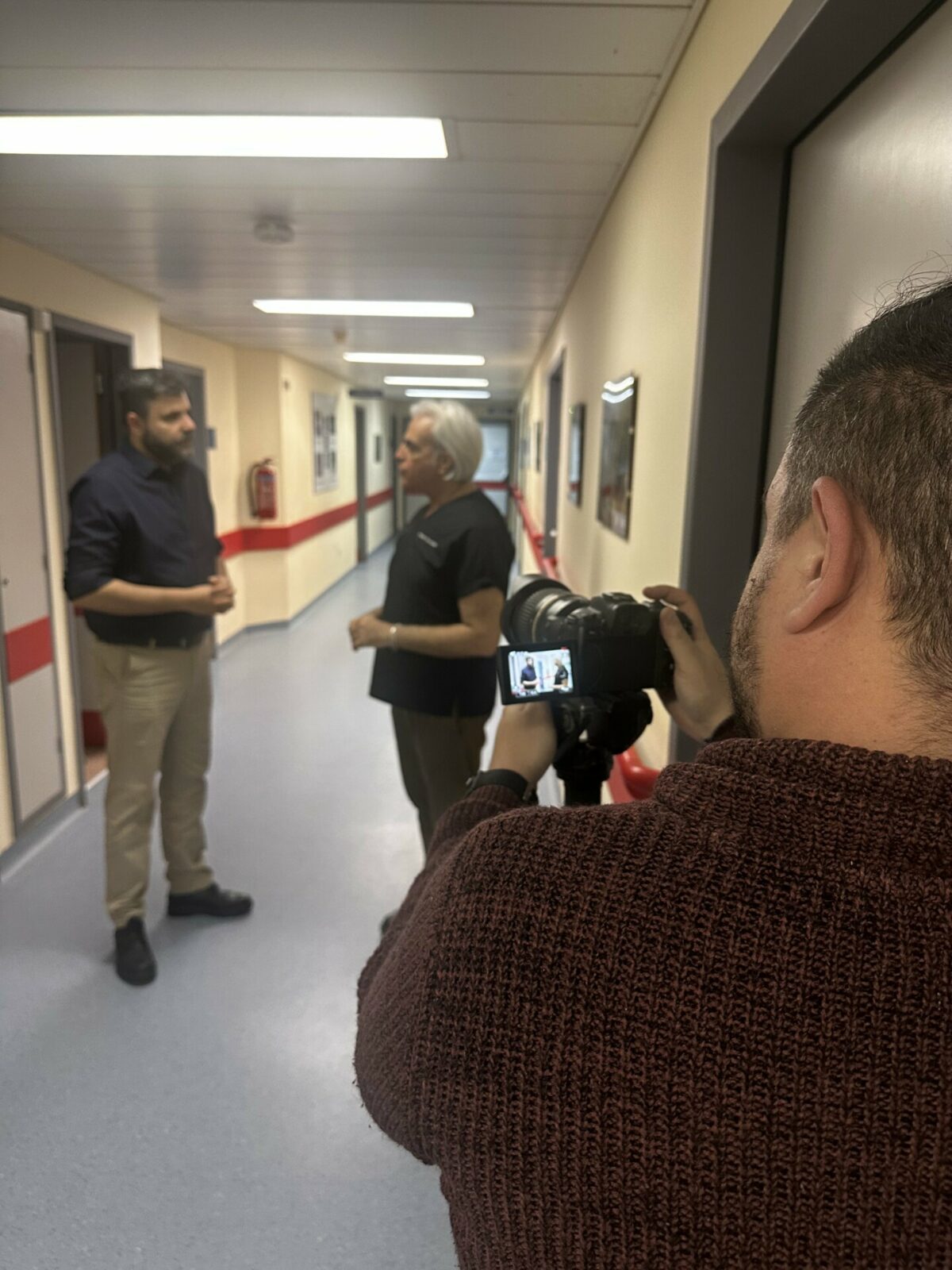
Each of us brought to the table the experiences, imagery, and perspective of our own region. The outcome was a unified narrative, rooted in local communities yet addressing a wider audience.
This experience was invaluable. We were able to see how colleagues in other parts of the country work, to compare reporting methods, and to exchange tools and production techniques. It opened new paths for us. We discovered that behind local news stories often lie shared questions, shared wounds—and that telling these stories becomes more powerful when done collectively.
Investigating Artificial Intelligence: What lies beyond the algorithm
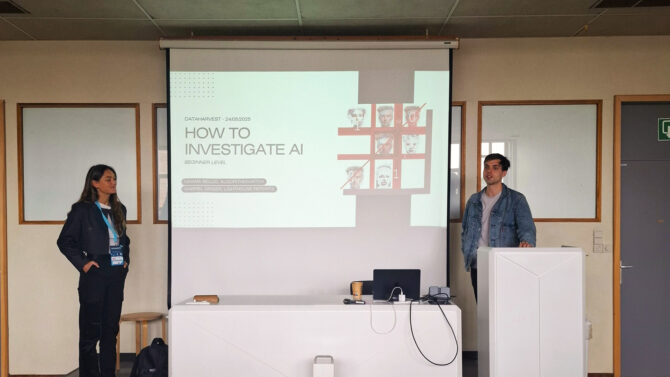
Artificial Intelligence has become an integral part of our daily lives — but the real cost is often borne by others. At the Dataharvest conference, journalists presented their investigations and shared tips on how to dig deeper into this technology.
Three moments that marked us
• In Kozani, filming coincided with the deadly accident at the Polymylos toll station. The local community was in shock and responded with heightened sensitivity to the topic of the silent psychological aftermath of trauma and the importance of support.
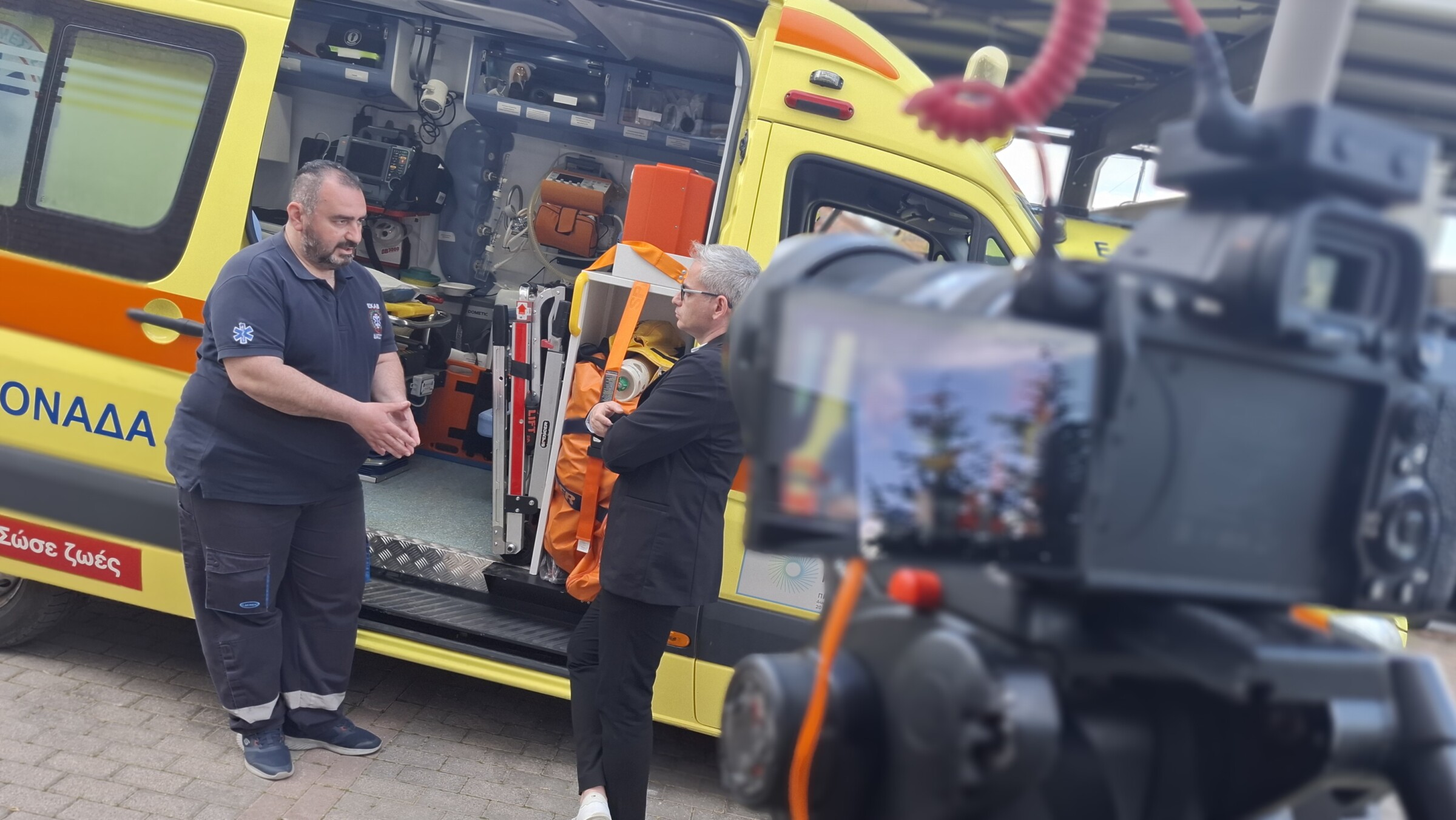
• In Trikala, a 25-year-old motorcyclist spoke to us about the adrenaline of speed and how he pushes the limits without fear of the consequences—even though he’s been hospitalized three times with serious injuries. “I feel free,” he told us without hesitation. “This is my life.”
• During filming at the Chania Hospital, a woman in the elevator asked us: “Are you here for an interview?” We explained we were making a documentary about road accidents. “Which family in our region hasn’t mourned a loss from a traffic accident?” she said as she exited. As the elevator doors closed behind her, the journey to the 5th floor of the Neurosurgery Clinic felt endless.
This collaboration reminded us that journalism in regional Greece may seem to deal with local issues but can be much more—if it seizes the opportunities provided by initiatives like iMEdD.
For that reason, we owe a heartfelt “thank you” to the entire team and leadership of iMEdD.
Credits
Reporting Team – Script
Vasilis Alexiou (Trikalavoice.gr)
Socrates Moutidis (Chronos Kozanis)
Paraskevas Perakis (Haniotika Nea)
Camera
Konstantinos Manousaridis
Charalampos Galanakis
Editing
Konstantinos Manousaridis
Featuring
Konstantinos Zopounidis, Professor, Technical University of Crete
Konstantinos Kostakopoulos, Head of Traffic Police, Trikala
Thomas Sarafidis, Rescuer, EKAV Kozani Division
Antonis Krasoudakis, Director of Neurosurgery Clinic, Chania Hospital
Pinelopi Melidou, Health Psychologist – Psychotherapist

